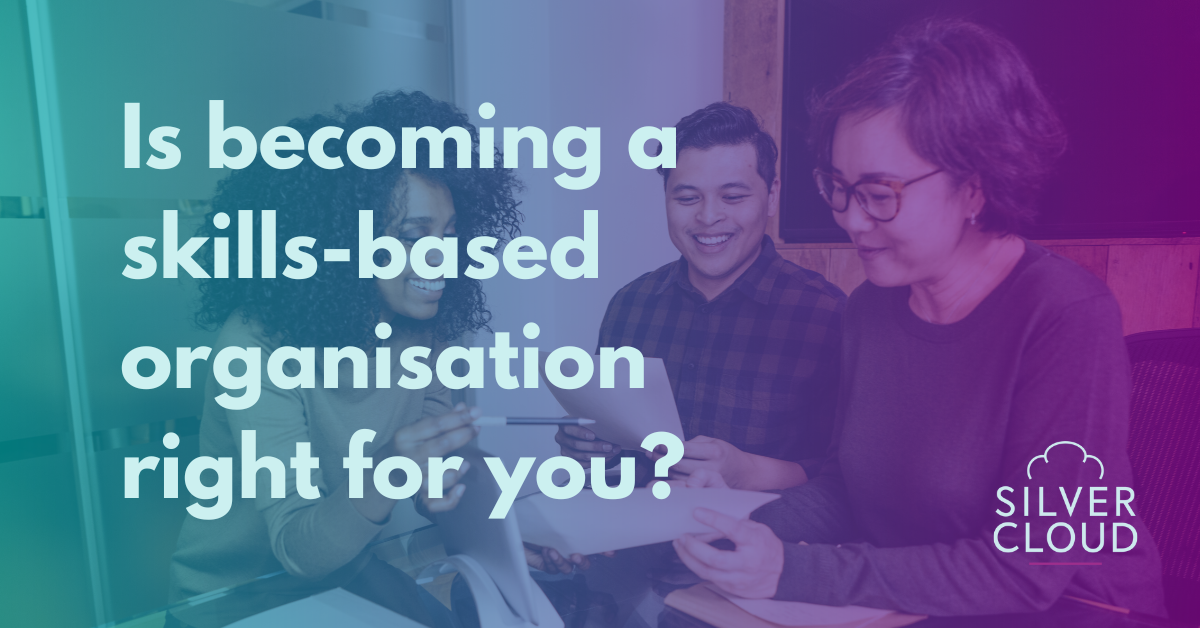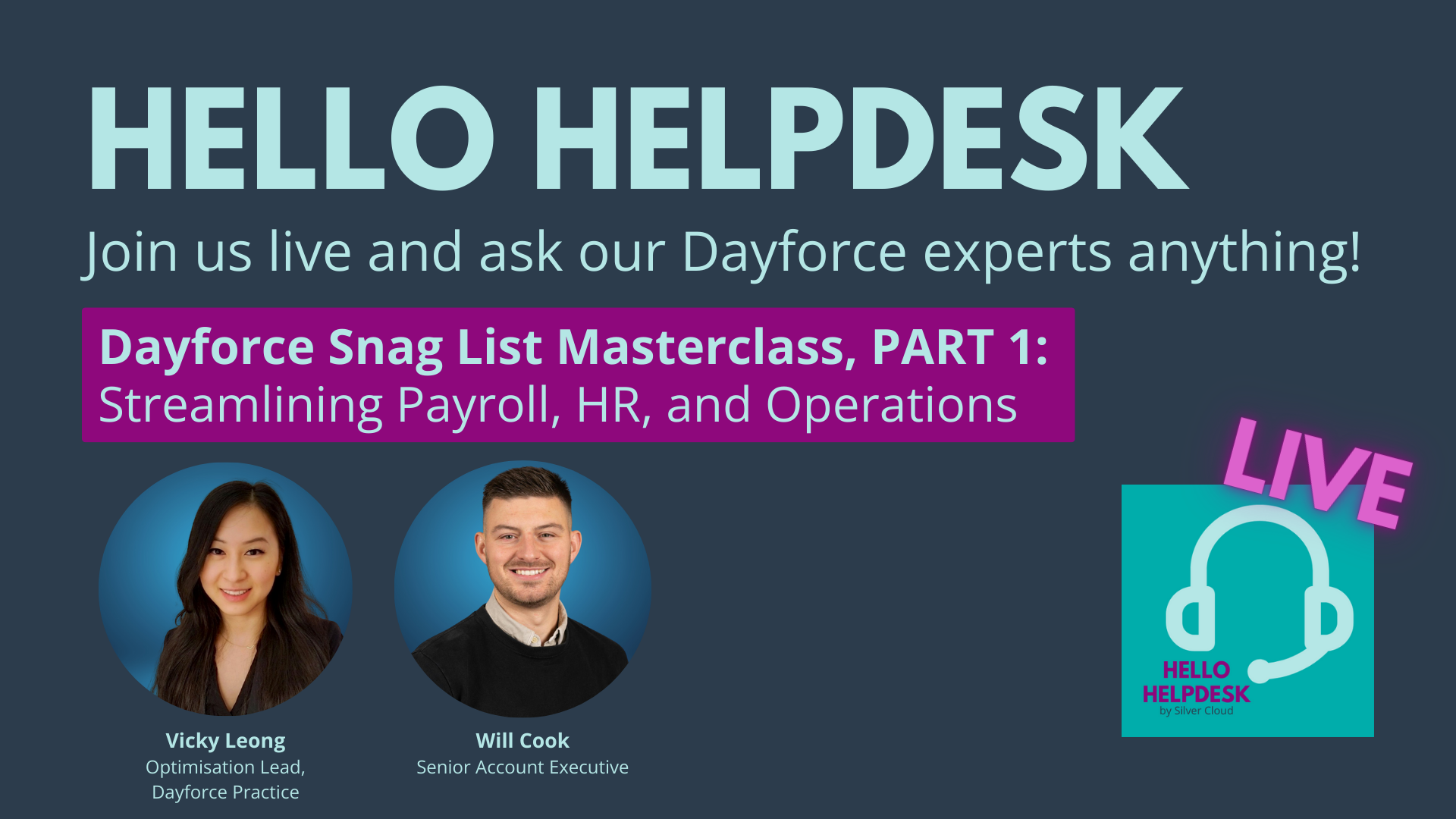Ready, Set, Grow: future-proofing your HR & payroll
by SJ Hood

The world is changing and so is your business. Whether it is changing strategy, scaling headcounts, merging with another business or even acquiring a different company, the future of your business will be different from where you are right now. Which is why we hosted our recent webinar “Ready, set, grow: future-proofing your HR & payroll.” Our CEO, Helen Armstrong, hosted the event and was joined by COO of HiBob, Ze’ev Rozov and CHRO of CloudPay, Judith Lamb.
Together, they shared strategies for making sure your business is ready for the future, whatever that looks like. Securing data, managing change, and fostering a resilient workplace culture were major themes that ran throughout. All underscored by the importance of having the right systems in place to make your growth and transition smoother.
Here’s an overview of what these three experts covered:
(Want to see the full webinar? Check out the on-demand version here.)
Securing data: the foundation of future-proof HR
The first and foremost objective in modern HR and payroll systems is data security. It has to be because data is now the most valuable commodity in the world. In the webinar, Helen took the time to emphasise how important securing your data is. It needs to be the bedrock of your HR processes.
Helen also pointed out that a holistic, global platform, one that contains all aspects of HR and payroll without the need for workarounds, is one of the most effective ways of assuring that security.
Ze'ev then added a deeper layer by highlighting the substantial investments companies make in data security. He stressed that it's not just about having the right systems but also about finding the know-how. For instance, if a company decides to expand into a new region like Portugal, it needs to understand the specific requirements and regulations of that region.
This knowledge can be found in two main arenas: a community of experts who can provide guidance and recommendations or support from a dedicated consultant skilled in your specific requirements. The direction you choose is likely to do with how much bandwidth you have to dedicate to these things alongside your business-as-usual tasks.
Managing change: keeping employees engaged
Change is a constant in any growing organisation, and managing this change effectively is crucial to maintaining employee engagement and minimising disruption. Helen Armstrong asked Judith and Ze'ev for their advice on handling the, often draining, process of organisational change.
Judith spoke about the importance of planning and communication. She remarked that bringing your people along on the journey is the most important part of successful change management. This involves more than just sending a single email, she said; it requires a structured communication plan that keeps employees informed and engaged throughout the process.
Judith then shared a practical example from her experience: running monthly town halls across different time zones to ensure all employees are included in the conversation. These town halls not only provide updates but also offer a platform for employees to ask questions and voice their concerns, fostering transparency and trust within the organisation.
For mergers and acquisitions (M&A), Judith focused on the need to communicate early and often. Keeping employees informed about the reasons for the change and what to expect helps mitigate uncertainty and build confidence in the transition.
Additionally, she pointed out the necessity of providing training for managers to navigate change effectively. This includes leadership and management training that equips them with the skills to support their teams through periods of change.
Navigating difficult conversations: a path to trust and respect
One of the standout points made by Ze'ev was the importance of not shying away from difficult conversations during times of change. He shared from his 30 years of experience that avoiding tough discussions never adds value. Instead, being upfront about the positives, negatives, and unknowns of a situation builds a culture of trust and respect.
Ze'ev's advice is to address challenges head-on and communicate openly with employees. This approach not only helps in managing the immediate impacts of change but also fosters a resilient organisational culture that can better handle future challenges. By being transparent and honest, leaders can cultivate a sense of shared purpose and collective problem-solving, which is invaluable during times of transition.
Balancing planning and agility: the key to growth
Throughout the webinar, the recurring theme was the importance of balancing thorough planning with the ability to remain agile. Planning is essential to anticipate and prepare for changes, but flexibility allows organisations to adapt to unforeseen challenges effectively.
Helen summarised this well by noting that planning for the unplanned is crucial. This means having a solid plan in place but also being prepared to pivot as needed. Using partners and experts who can provide insights and advice is a critical part of this process.
Prioritising self-care: handling stress during change
Both Ze'ev and Judith touched on the importance of self-care for HR professionals and leaders managing change. Ze'ev reminded us that the process can be stressful, and it's essential to take care of oneself to manage stress effectively. He advised finding ways to handle stressful situations constructively and not avoiding challenges, as facing them head-on is more productive.
Judith echoed this sentiment, highlighting that supporting businesses through change can be very busy and challenging. She urged HR professionals to be kind to themselves, acknowledging that not everything will happen perfectly. Taking moments to relax and recharge is crucial for maintaining well-being and effectiveness in their roles.
Final thoughts: embracing continuous improvement
The webinar concluded with a focus on continuous improvement. Helen wrapped up by reiterating the key points: thorough planning, agility, leveraging partnerships, and effective communication are vital to future-proofing HR and payroll systems. She emphasised the need for organisations to think ahead, plan for various scenarios, and be prepared to adapt as circumstances change.
Both Ze'ev and Judith provided valuable closing remarks. Ze'ev reminded us to take care of ourselves and not shy away from challenges, as avoiding them rarely leads to productive outcomes. Judith added that being kind to oneself and accepting that not everything will be perfect is essential in managing change effectively.
Collectively, they agreed that taking care of the human side of human resources was critical and that adaptable, comprehensive, user-friendly technology and systems are the way to do that.
Want to see more? Watch the full webinar now and take the first step towards future-proofing your HR and payroll systems.



